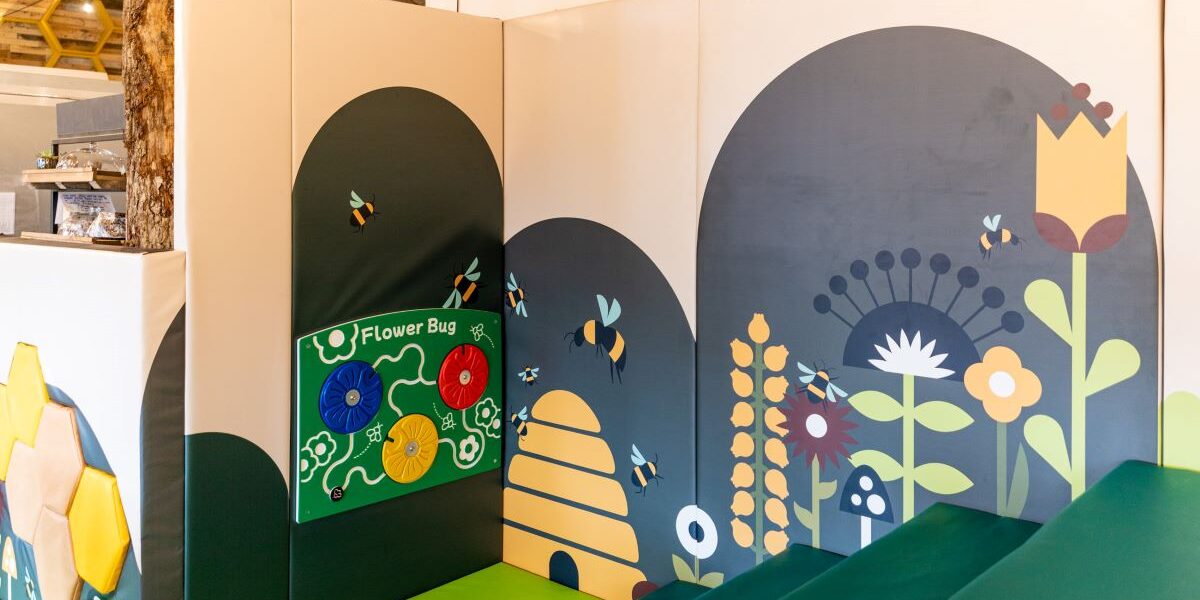As adults in the church congregation, we are called to guide our children in their spiritual journey through the word of God. Now that’s a tall order!
How do we keep future generations engaged and inspired when they’re still learning how to “just be kids” themselves? Sunday School, church nurseries, VBS, and youth groups are all great ways to lay the foundation of faith.
How do soft play structures and indoor playground spaces fit into the equation? We’re glad you asked!
Children need to have a healthy and safe space to play and learn. When you blend age-appropriate play activities with scripture-inspired storytelling, that’s one of the best ways for children to learn and grow!
In fact, there are studies that show children learn more through guided play than from teacher-led instruction.
Your church’s indoor playground should be an extension of your church’s message. Imagine a soft play with theming around Bible stories like Noah’s Ark or Jonah and the Whale.
Making learning fun is key to capturing the hearts and minds of children. So, what should you consider when choosing play equipment for your church?
Soft Play
Soft play—characterized by its use of soft, cushioned materials—offers numerous benefits for young children. There are many reasons why soft play is a sensible choice for church ministries catering to infants and toddlers.
Safety
Safety is the top concern in any environment where children are present. Soft play equipment—such as padded blocks, climbing structures, and ball pits—are designed to minimize the risk of serious injuries.
The soft, cushioned surfaces absorb the impact of falls, reducing the likelihood of head injuries or broken bones. This safety feature provides parents and caregivers with peace of mind, knowing that their children are playing in a safe and protected space.
Physical Development
Beyond safety, soft play promotes physical development in young children. The tactile nature of soft materials encourages exploration and sensory stimulation. As children interact with the soft play equipment, they develop fine motor skills, such as grasping and manipulating objects.
Additionally, soft play activities can help improve gross motor skills, including crawling, climbing, and balancing. These physical benefits are essential for a child’s overall development, and big milestones, such as when infants begin to walk, are shown to have a relationship with language development.
Emotional Development
Soft play also fosters social and emotional development in young children. When children play together in a soft play environment, they have opportunities to interact, share, and cooperate. This socialization helps them develop important social skills, such as taking turns, sharing toys, and resolving conflicts peacefully.
A soft play environment can provide a sense of comfort and security for children. The soft, cushioned materials can create a cozy and inviting atmosphere, making children feel safe and relaxed.
Spiritual Development
Incorporating soft play into church ministries can also contribute to a positive and engaging experience for children and their families. The colorful and inviting nature of soft play areas can create a welcoming and stimulating environment.
When children have fun and enjoy their time at the church, they are more likely to develop a positive association with the religious community. This can have a lasting impact on their spiritual development and their connection to the church.
Are you ready to inspire your church congregation?
This article is courtesy of Next Level Parks, which transforms spaces and enhances experiences for churches, adventure parks, and family entertainment centers with indoor interactive playground equipment, www.nextlevelparks.com.




